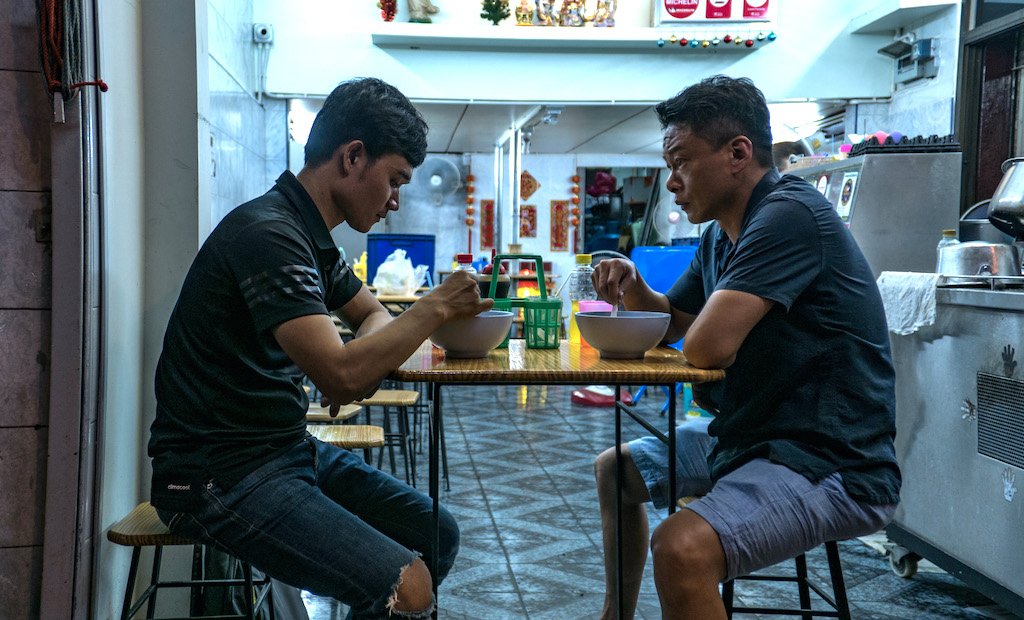Days (Rizi)

Tsai Ming-liang makes films that probe the very nature of art. Eschewing senseless and frenetic action, they stop and linger, breathing in their surroundings. They appeal to the pure aesthete, one whose philosophy finds its home in painting and installation, as much as they do the vulgar materialist, one who sees art forms as constructed within and against gate-keeping institutions.
Their style of spontaneous slowness is in this way both a rejoinder and a provocation. They are feasts of unfurling illustration, of real life echoing outwards. They show delectable scenes predicated on newness and difference, which force the viewer to alter their visual expectations. They ask to be swallowed and digested. This can produce the heretical response for cinephile ears: that these works are boring.
Tsai’s latest is very much in his usual tradition: long takes, conscientious scrutiny of detail and an arrhythmic-beating narrative centre, sometimes glimpsed, sometimes forgotten. One of his regulars, Lee Kang-sheng, plays Kang, a middle-aged man who is wealthy, physically debilitated and alone. In the interests of representative realism, this apparently corresponds to Lee’s current predicament: his neck affliction has reappeared after 20 years.
The practical inversion of Kang, Non (newcomer Anong Houngheuangsy) is a young man who lives in a seedy, run-down area of Bangkok. He prepares fish and kale at home and labours in the local market. Houngheuangsy’s role apes his own life before Tsai’s discovery of him, another fidelity to so-called true experience. Non capsizes Kang’s frailties. The pair meet in a hotel room, which supplies a sublime erotic climax. Its sexual charge is untempered and thrilling.
With little dialogue elsewhere, a music box containing a Charlie Chaplin melody offers the ironic audio imposition, the sentimental bond between the two leads. Dennis Tsao’s sound design forms an abundance of natural vibrations around them while Chang Jhong-Yuan’s precise photography occasionally succumbs to delicate movement. The latter edits solemn interludes with retrospective grace and attention. The lack of screenplay is testament to the idea that futures are unknowable.
Is this film successful? To attempt a value-based appraisal induces risks. This is undoubtedly a sensory massage, and the framing of a sun-dappled street doesn’t displace itself from memory. Its otherworldly static persistence becomes the mind’s cement. This speaks to one of the legacies of modernism in cinema: the continued artistic resistance to conventional form. Against the relentless speed of the contemporary mainstream, Tsai asks us to sit still, look and retain images. We treat shuttered windows as tapestries and sleeping bodies as prone silhouettes.
The director’s previous work Your Face offered extended close-ups as portraiture. Days shows tableaux that break free into motion. We watch familiar settings become defamiliarised, their essence distorted through lengthy, studied inspection. These form shifting compositions of productive beauty, from which the viewer solicits joy through intense observation. That, or this all amounts to a sort of art-house pudding, indicative of a homogenised festival culture, the non-plot in which we are all trapped.
Joseph Owen
Days (Rizi) does not have a UK release date yet.
Read more reviews from our Berlin Film Festival 2020 coverage here.
For further information about the event visit the Berlin Film Festival website here.
Watch a clip for Days (Rizi) here:























Facebook
Twitter
Instagram
YouTube
RSS